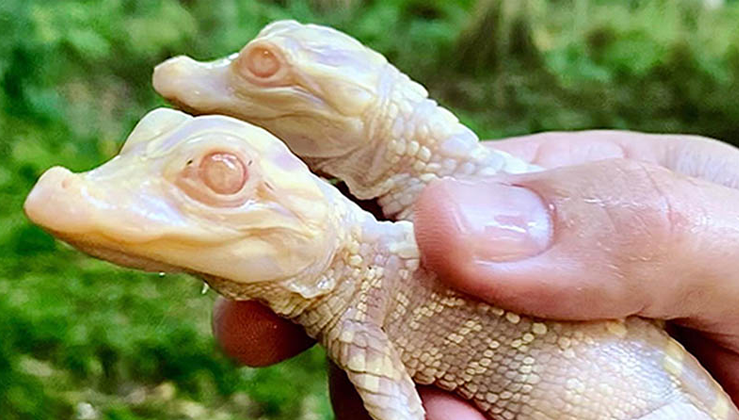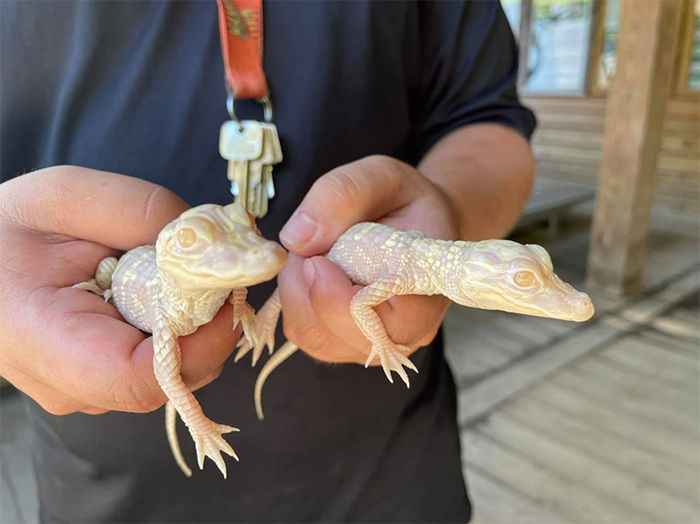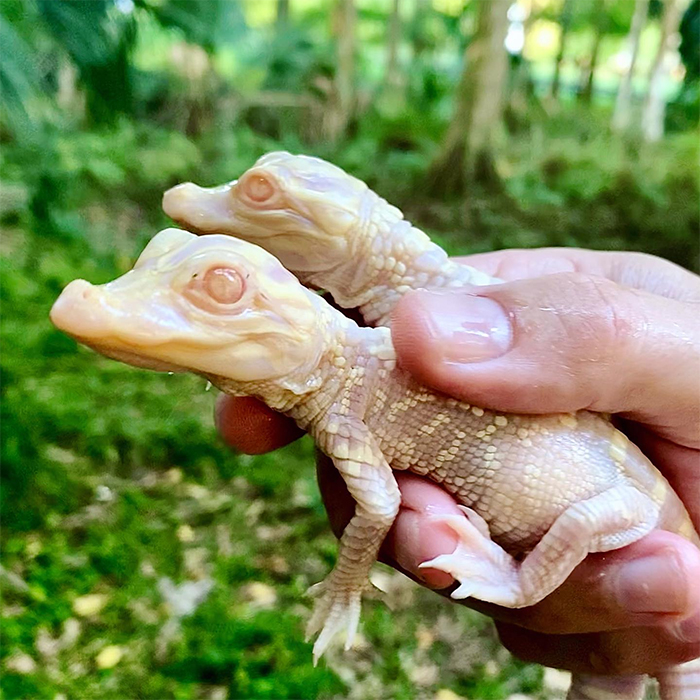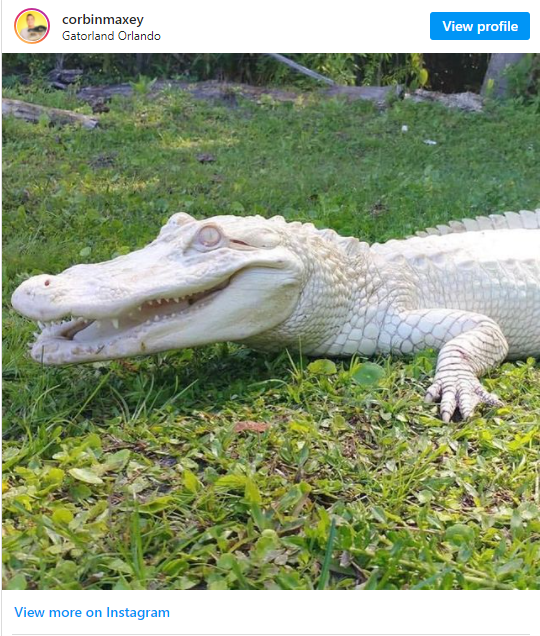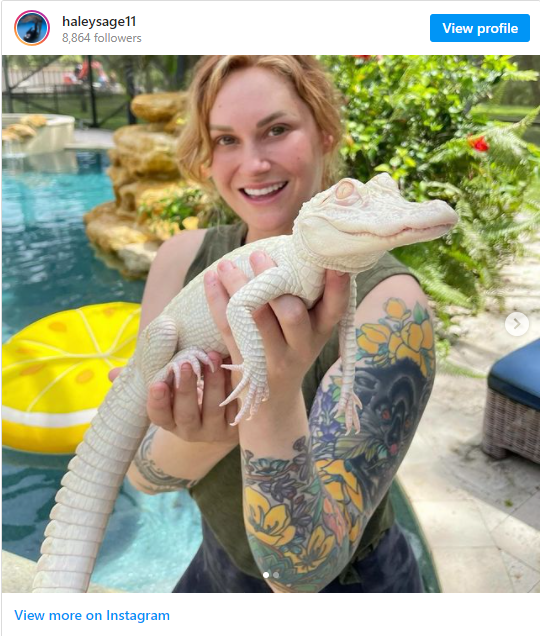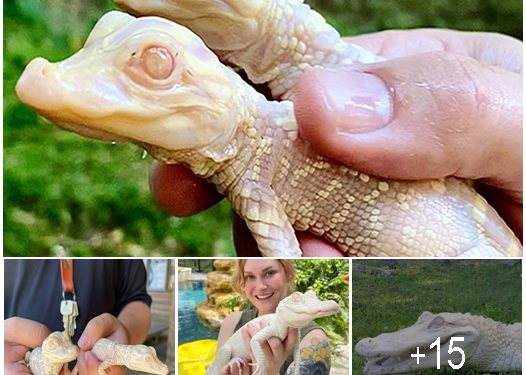
Albinism, a genetic condition resulting in the absence of melanin, is a rare but fascinating occurrence that can affect not only humans but also animals and even plants. Recently, Wild Florida Airboats & Gator Park in Kenansville, Florida made an exciting announcement, revealing the birth of two precious albino alligator babies that have captured the hearts of many.
The animal park shared a captivating photo of the albino alligator hatchlings on their Facebook page, leaving people astounded by their unique appearance. While most alligators exhibit dark skin colors, with blackish-grey for the darker-skinned ones and olive green or light brown for the lighter-skinned ones, albinism can make an appearance in these reptiles, resulting in a remarkable, ivory-colored skin and lightly pink-tinged eyes. This genetic condition is a result of a recessive gene, which must be inherited from both parents for it to manifest in the offspring.
Wild Florida is on a mission to breed more of these incredible creatures and is fortunate to have an albino alligator couple named Blizzard and Snowflake to aid in this endeavor. Last August, the couple welcomed five offspring, with one inheriting the albino gene. A year later, the park proudly announced that the pair had laid 18 eggs, two of which have now hatched and bear a striking resemblance to their white-skinned parents. Although these hatchlings are reported to be in good health, they will require intensive care and nurturing before being introduced to the public.
Albino alligators, due to their inability to produce melanin, lack the natural camouflage protection that is essential for survival in the wild. Additionally, their white skin leaves them susceptible to severe sunburns, as they lack the typical skin protection against harmful UV radiation. Consequently, albino alligators born in the wild face significant challenges and tend to have shorter lifespans. In captivity, they are provided with special enclosures designed to mimic their natural habitat while protecting them from direct sunlight, enabling them to thrive.
The heartwarming news from Wild Florida offers a precious opportunity for all of us to observe these remarkable creatures. Moreover, the two hatchlings we see are just the beginning, as there are still 16 more eggs with the potential to hatch, providing more chances to celebrate the beauty and uniqueness of these rare albino alligators.
